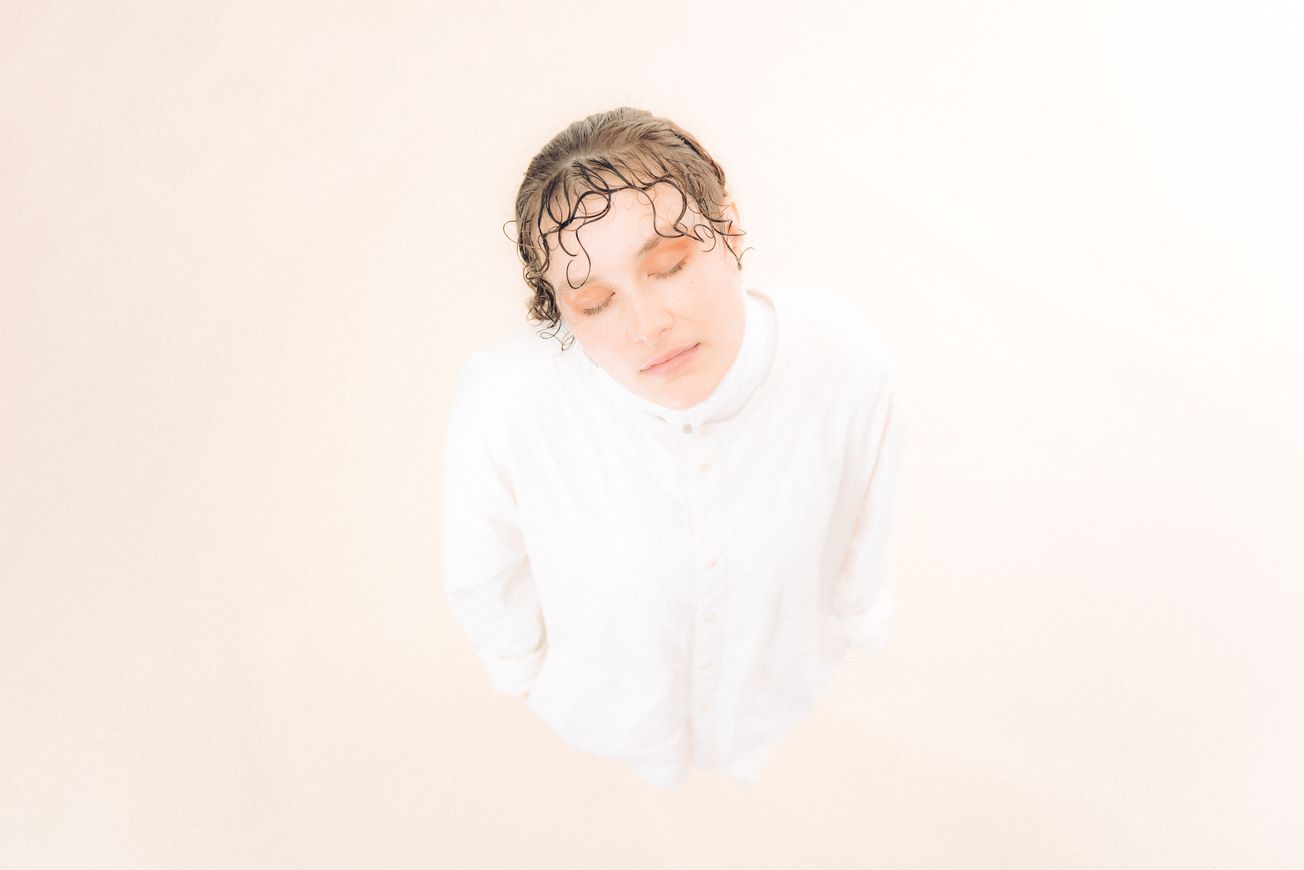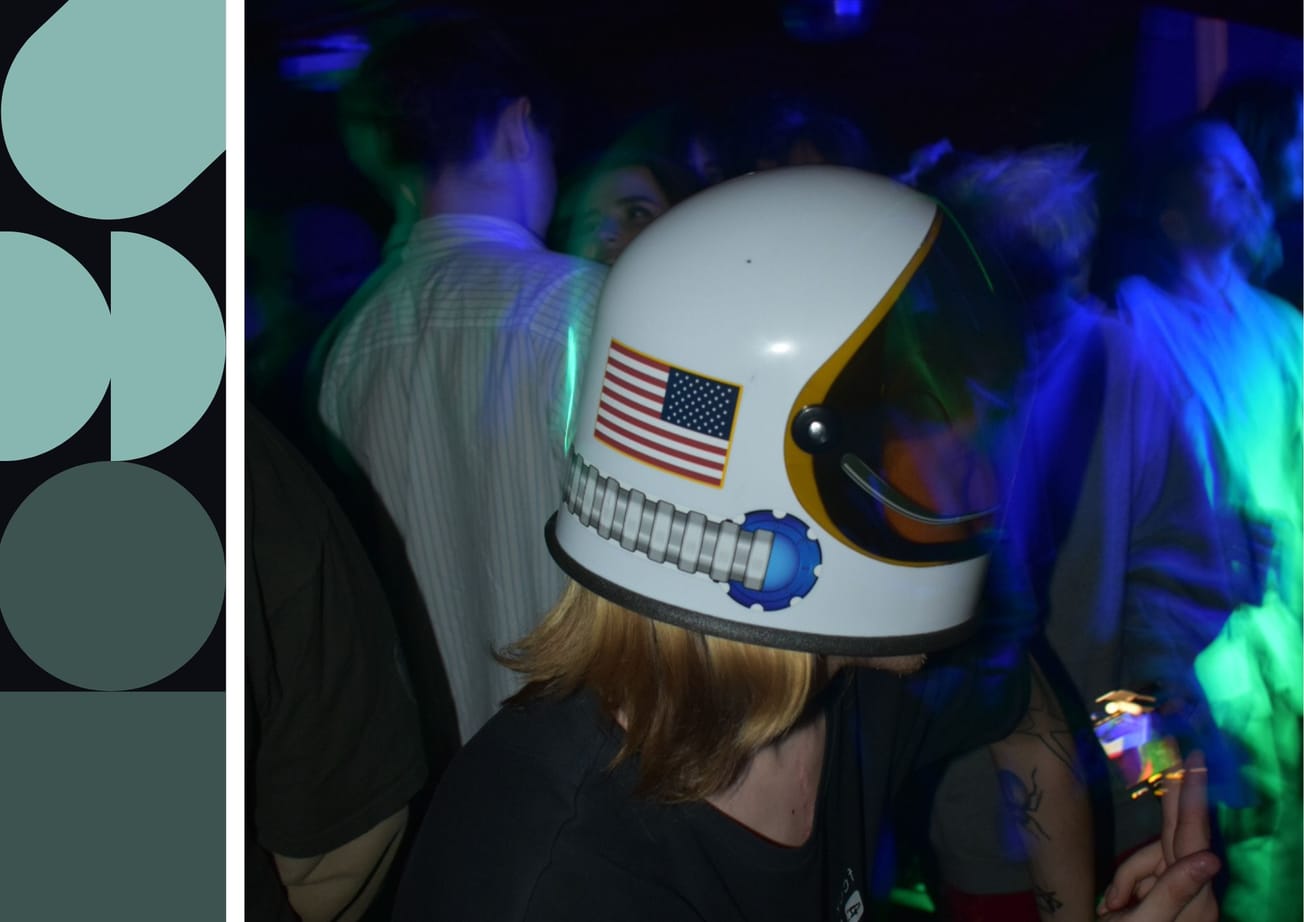By Jacob Collett, Third Year Psychology
After attending their beautiful live set at The Gallimaufry for the launch of their new EP ‘Strength In Tenderness’, epigram caught up with t l k to chat about the EP, their story and their journey in music so far.
t l k is an independent producer, vocalist and multi-instrumentalist based in Bristol. Weaving ethereal vocals over immersive, melantronic beats, t l k has released a string of singles over the past two years, but ‘Strength In Tenderness’ marks their first extended body of work.
Diving straight in with the new EP – how did the name ‘Strength In Tenderness’ come about and what does it mean to you?
The project is I suppose a portfolio for the times, and I picked the title because I felt that it encapsulated the way the music had been made, which was all through necessity. I think the act of producing, making, sharing in, and experiencing music is a way for me to process psychologically and all the tracks on the EP have come about that way and will continue to in the future. They are all born of some form of processing and a need to sit with my tenderness and move through it by making. They were made through both me learning how I want to produce music and coming into a coherent sound but also moving through this realisation for this need to make, and these two things are why the title came through probably.
How has the Bristol improvisation scene shaped your sound?
Yeah, massively! Being in spaces that are united through improvisation has allowed me to experiment, to absorb how other people speak this language and to learn from that while experiencing a freeing of expression and playfulness. I think while it can be quite extroverted when energy is being shared in a room and it’s quite vibrant or lively, I think that has come with me into more introverted practice. Producing in my own company has almost become a process of improvisation with myself and recognising the beauty in the transience of recording on a whim. But I’m constantly inspired by the people around me, and improvisation spaces are ones where I really feel that. I spend a lot of time in them just listening and feeling in awe of people that have become my friends through those environments.
As an independent producer, vocalist and multi-instrumentalist, how did you learn your craft and how does solo production influence your sound?
I had I guess what you’d describe as more of a traditional classical training as a young one and that gave me a foundation in music theory that I feel very grateful for. But like with anything it comes with its restrictions, which pushed me towards experimenting. My early understandings of production were recording on Garage Band on an early iPhone and not really having the skills to do much more than record some layers over one other - which is essentially what production is! It felt really limited at the time but because it was frustrating, and the screen was so small it pushed me to record long takes and I think that was kind of early improvisation in a sense. In my teenage years I had a few friends that were really into production and a couple of them produced a song with me that I had written, so I started to understand some of the terminology, but it still felt like magic! It wasn’t until towards the latter days of my Uni that I started to produce and although the projects were super messy at first, I eventually just became really obsessed with it and when lockdown hit, I really got deep into it and started to refine the sound until it felt quite cohesive and something I was happy to release.
When did you first start making music and who were your influences?
My influences have changed but some continue to be big staples - James Blake and his blending of organic and electronic and the way he explores vocal processing in quite a minimalist way. He sets a tone, and you just buy into it, you can’t help but feel what he is feeling and that’s inspiring for me, and I return to his music a lot. Equally I’m inspired by choral music and the ways in which harmony are played with and pull you through different pockets, but then also the sheer variety and expansive world of Radiohead. Also, artists like FKA Twigs and Björk who use vocals so expressively but then also have this classical, yet ethereal, almost alien sound paired with heavy uncomfortable electronic sounds are very compelling to me.
You talk a lot about using music making as a medium for psychological processing – is this specific to music or all creative outlets? I know that you also directed the music video for your track ‘Next To The Mirror’
I’d say that music is the language that I feel I have most access to, but I think the process of making the video was another level of that. It was the first time that I directed a video period, so it was a new experience for me, and although I didn’t feel the same level of access to language that I do in music, there was still something quite profound in the coming together of different people. To witness dancers who are proficient in that creative language retranslate the music into movement and completely make that their own was another level of that. I think that’s why visuals are so impactful because even though they’re outside the language I feel comfortable with or I have access to, I still have access to it in a way by surrounding myself with people who spend the same amount of time as I do in music, in video, lighting or choreography.
You also are known for performing in choral gowns – could you talk about the significance of this?
Well, they’re open to interpretation and it's cool that people have gone with choral, but I don’t know if that was ever the intention! For me they are blank canvases or uniform, in the sense that we all wear them, and they’ve been used in the video and all the shoots. There’s an absence of labelling - they’re not particularly gendered, they’re neutral and they’re also oversized and comfortable to move in, which I feel is important both in the playing of music and in movement. There’s just something psychological about putting something on routinely, like we get them on for gigs and there’s a ritual in that, which I think is a by-product of the original decision to have that neutrality and that uniting front among the musicians.
Finally, what can we expect from t l k in the coming months?
Beyond the EP release on Friday, I’m heading off to Suffolk for a short residency to do some writing and some experiments with recording that will most likely form the next project. I’m trying to keep it vague... but I’m excited to do some recording of my own things outside the space I’m comfortable in because I’m feeling an itch to do that. Collaborating with other Bristol musicians made me realise that that’s something I’m yearning for and to really push myself to record in new spaces and up my game production- and quality-wise. So, more music and maybe some translations of different concepts in other forms too, but that’s about as specific as I’ll go!
‘Strength In Tenderness’ is out today (25thFebruary).
Featured image: Giulia Spadafora
Have you listened to t l k's new EP?









